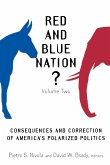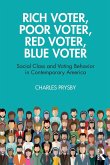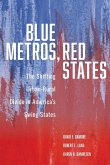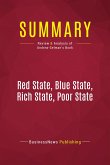
Gebundenes Buch
How the Culture Wars Change the Way Citizens Speak and Politicians Listen
18. September 2012
OUP USA / Oxford University Press
| eBook, ePUB | 22,95 € |

22,95 €
Sofort per Download lieferbar
eBook, PDF
18. März 2019
Oxford University Press
| Gebundenes Buch | 71,99 € | |
| eBook, ePUB | 26,95 € |
Ähnliche Artikel

Gebundenes Buch
How Parents, Siblings, and Children Affect Political Attitudes
1. September 2014
Oxford University Press

22,99 €
Versandfertig in über 4 Wochen
Gebundenes Buch
The Survival Guide to Life in the Real America
1. März 2016
New Press

Broschiertes Buch
Consequences and Correction of America's Polarized Politics
14. Januar 2008
RLPG/Galleys

19,99 €
Versandfertig in 1-2 Wochen
Broschiertes Buch
Defending the Liberal Jesus and Blue State Morality from Red State Religion and Hypocrisy
22. April 2005
iUniverse

Gebundenes Buch
The Electoral State of America
28. April 2005
Author Solutions Inc

22,99 €
Versandfertig in 1-2 Wochen
Broschiertes Buch
The Electoral State of America
28. April 2005
AuthorHouse

Gebundenes Buch
Social Class and Voting Behavior in Contemporary America
15. Juni 2020
Routledge

Broschiertes Buch
Social Class and Voting Behavior in Contemporary America
10. Juni 2020
Routledge

Broschiertes Buch
The Shifting Urban-Rural Divide in America's Swing States
6. Oktober 2020
Brookings Institution Press

Broschiertes Buch
Review and Analysis of Andrew Gelman's Book
30. Januar 2017
Political Book Summaries
Ähnlichkeitssuche: Fact®Finder von OMIKRON
